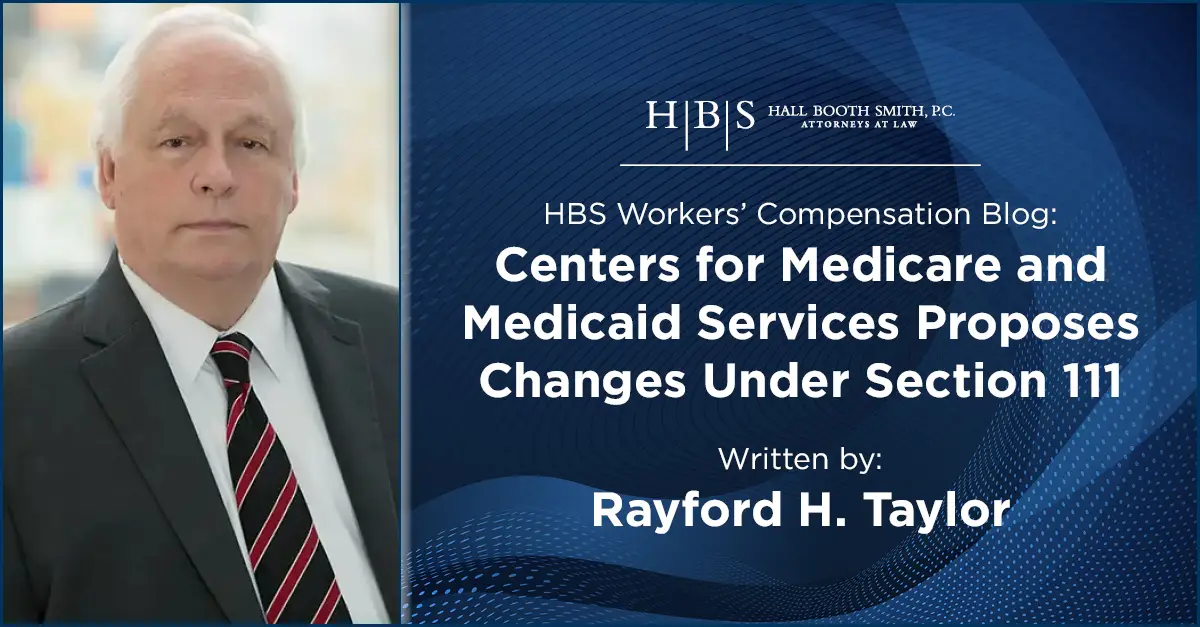
Centers for Medicare and Medicaid Services Proposes Changes Under Section 111
The Centers for Medicare and Medicaid Services (CMS) has clarified its plans to amend Section 111 relating to workers’ compensation settlements, announcing its plan to change its Total Payment Obligation to the Claimant (TPOC) under Section 111. The changes will also increase the Civil Money Penalties (CMP) to be imposed on reporting entities.
Effects of the Proposed Rule
The proposed rule does not change Section 111 reporting requirements, and will not become applicable until October 11, 2024. However, the earliest that CMS will impose any penalties will be October 2025. There will be no retroactive application, and all penalties will be prospective in nature. The settlement agreement is not required to be submitted to CMS for approval, so that process will continue and remain voluntary.
The proposed changes will add requirements for reporting entities to include amounts allocated for future medical treatments in settlements of workers’ compensation cases. At present, the amounts of benefits being paid to injured workers in a settlement can include a lump sum payment to the employee, the amount of Medicare Set Aside (MSA) funds being allocated as part of the settlement, whether any liens are being resolved, and the amounts of any attorneys’ fees and other payments.
The implementation of these changes will be expected to take effect in January 2025.
The data to be reported includes the total amount being allocated to the MSA, even if that amount is zero. The period of coverage is required if there is any MSA amount at all, and it will require amounts for lump sum or annuity payments for any settlement. The amount of any initial deposits will have to be disclosed if the MSA is structured, and the reporting entity will also be required to include the annual deposit amount.
Finally, a Case Control Number previously established with CMS will be required to be included. While these additional fields are theoretically optional, CMS will want this information to identify approved MSAs.
CMS has also indicated that if money is set aside for future medical expenses in the settlement, that information must be reported to CMS whether or not the MSA is submitted to CMS for approval. This requirement only applies to workers’ compensation settlements. If there are future medical allocations, notification in the MSA will be sent to the beneficiary by CMS explaining the process for attestation and exhaustion of those future funds.
Closing
While the above changes are not scheduled to be effective until next year, this is a good time to consider reviewing and revising your settlement agreements for purposes of being in compliance with Section 111’s upcoming new guidelines. That way, you and your vendors will have already adapted procedures to comply with the new regulations when the changes become effective.
If you have questions regarding these upcoming changes or any other workers’ compensation question you can contact Rayford H. Taylor.
Disclaimer
This material is provided for informational purposes only. It is not intended to constitute legal advice nor does it create a client-lawyer relationship between Hall Booth Smith, P.C. and any recipient. Recipients should consult with counsel before taking any actions based on the information contained within this material. This material may be considered attorney advertising in some jurisdictions. Prior results do not guarantee a similar outcome.
Blog Overview
About the Author
Rayford H. Taylor
Of Counsel | Atlanta Office
T: 404.954.6949
E: rtaylor@hallboothsmith.com
Rayford Taylor focuses his practice entirely on workers’ compensation defense and appellate matters, representing clients throughout Georgia and Florida. he has handled over 200 appeals before the Florida Supreme court, the Georgia Supreme Court, and all five appellate district courts in Florida where he maintains a successful winning percentage of over 95%.




Leave a comment
You must be logged in to post a comment.